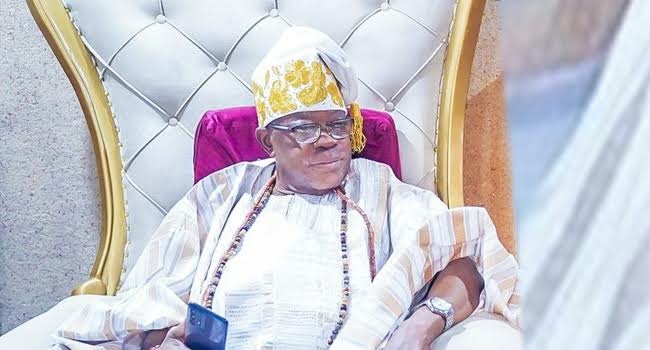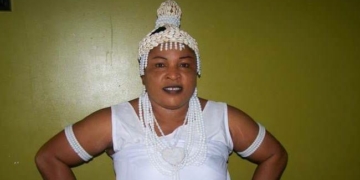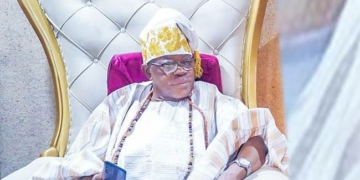Yoruba tradition holds that kings never die. They are unique entities and deities whose spirits are perpetually present on Earth. Present occupiers have the ability to call upon and revive them in order to provide direction, support, and guidance. It is said that kings have gone into the roof when they give up the ghost (Oba waja, Oba wo aja). All this signifies is that the monarchs have departed to be with their forefathers.
When kings passed on,, they are supposed to be secretly prepared for external life by the ‘Isoros’ through rites. Regretfully, we have not only abandoned traditional customs, but we now see videos and photos of the king’s remains on social media. We now bury kings like ordinary men. This is how culture and customs are being decimated and declined at the expense of other religions.
In the dense forest, a massive tree has fallen. The tremors were loud, yet they were followed by a constant silence. At the age of 81, Oba Lekan Balogun, Alli Okunmade II, the 42nd Olubadan of Ibadan, passed away. The awful and disturbing tragedy has been described with many words of condolence. Even though those were powerful remarks, they would never be enough to comfort the departed person’s friends and relatives. They saw him as the embodiment of brilliance and an enigma.
Barely three days after he celebrated two years on the throne, Oba Lekan Balogun, Alli Okunmade II, departed from this life. The first-class monarch, who did not recover from malaria, set out to see his forebears in the land of Hades at precisely 9:05 p.m. He was a well-known author, activist, and academic who focused mostly on human development, education, and governance. His achievements in academia and his story of becoming a PhD holder in spite of coming from parents who can not read or write continue to serve as an inspiration and motivation for the next generation of academics who aspire to greatness and brilliance.
The first-class monarch had a silver spoon from birth. According to pertinent sources, his late mother Awawu Balogun sold palm oil and went on to become the female leader of the Palm Oil Dealers Association in Lagelu. His late father Ibrahim Balogun was a well-known cocoa merchant. He strayed from his parents’ path, found support in education, and devised a new path for defining his life’s purpose. He was a fortunate man and a diligent worker.
From Brunel University to Manchester University, he battled to acquire an education—something his parents do not have. Lekan Balogun traveled the path of knowledge, became Olubadan of Ibadan, while his late father, Ibrahim Balogun, a cocoa merchant, became a Baale too in his lifetime. He dabbled in politics as well. Although he was not elected as the old Oyo state’s governor in 1983, he was subsequently elected as a senator of the Federal Republic of Nigeria in 1999.
EARLY LIFE
Oba Moshood Olalekan Balogun was born on October 18, 1942, in Ali-Iwo compound, present-day Ibadan North East Local Government Area of Oyo State, Nigeria. Sources claimed that his late father, Ibrahim Balogun, was a great-grandson of Balogun Okunmade (Ali-Iwo), an Ogbomoso prince, who settled in the present-day Aliiwo compound, Agodi Ibadan, in 11863. His late father was a cocoa merchant, while his late mother was a palm oil seller. (Source: Wikipedia).
EDUCATION
Oba Balogun obtained his O and A level certificates while doing a part-time job to sustain himself after he traveled to the United Kingdom. He proceeded to Brunel University. He left the university in 1973 with a master’s degree in administration and economics. He then had a brief stint with the Lambeth Local Government Social Services Department, where he worked for one-and-a-half years, after which his academic inclination took the better of him and he enrolled for his PhD.
MARITAL LIFE
Oba Balogun was a Muslim and was married to two wives with children. He passed away on March 14, 2024, at the age of 81, after a brief bout of malaria.
CAREER
Oba Balogun worked as a lecturer at Ahmadu Bello University, Zaria, Kaduna State, an editor of the monthly magazine The Nigerian Pathfinder, and as a director with Triumph Newspaper, Kano, as well as a management consultant for multinational organizations such as Leyland, Exide Battery, and Nigerian Breweries.
He worked with Shell British Petroleum Company, where he rose to the position of Administrator/Head, Industrial Relations, Recruitment and Scholarships, Planning, and Development units.
Balogun wrote and published widely. Many of his publications include: A Review of Nigeria’s 4-Year’ Development Plan, 1970–1974; Social Justice or Doom; Power for Sale; and Arrogance of Power.
POLITICAL LIFE
Balogun was a presidential aspirant on the platform of the Social Democratic Party (S.D.P.); he was also a gubernatorial candidate for the People’s Democratic Party (P.D.P.) in Oyo State in the present political dispensation. In addition to this, he was a senator of the Federal Republic of Nigeria in the Fourth Republic.
Lekan Balogun represented the Oyo Central senatorial district between 1999 and 2003. As a senator, he was chairman of the Senate Committee on National Planning and was a member of many Senate Committees, such as Appropriations, Security and Intelligence, Police Affairs, and Defense (Army).





Discussion about this post